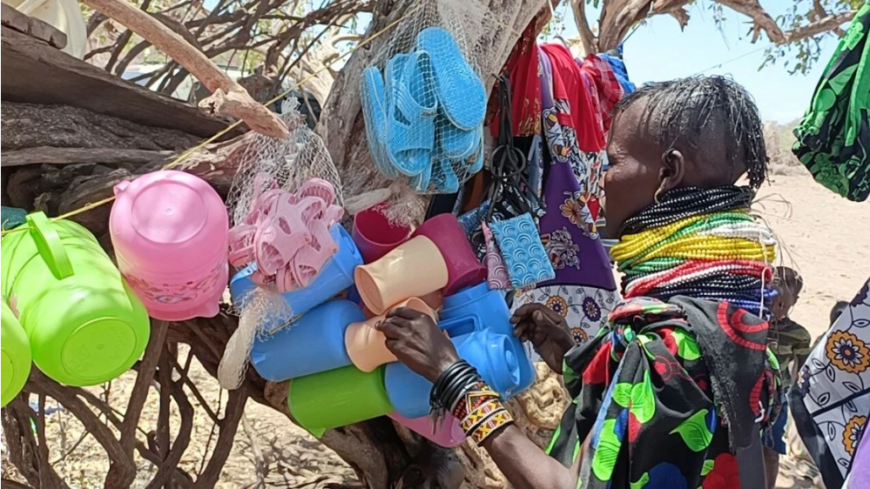In 2023, Kenya grappled with a challenging food security situation caused by a prolonged drought that began in 2020. The situation was further aggravated by the El Niño phenomenon in early 2024. This drought severely impacted harvests and livestock production, ultimately making areas across the country more vulnerable, especially the Arid and Semi-Arid Lands (ASALs).
As a result, 2.8 million people suffered from acute food insecurity. Furthermore, many pregnant and breastfeeding women, as well as children aged 6 to 59 months, are at risk of acute malnutrition¹.
Through the Kenya Cash Consortium (KCC), led by Acted and the ASAL Humanitarian Network (AHN), in collaboration with Oxfam, Concern Worldwide, IMPACT, and DanChurch Aid, affected communities have been provided with Multi-Purpose Cash (MPC), to cater for their most pressing needs. The program was made possible by the generous funding from the European Union (EU).
The project aimed to support households affected by food insecurity and malnutrition in the Mandera, Turkana, Wajir, Marsabit, and Samburu areas of Kenya and targeted 9,231 households or the equivalent of 55,133 individuals.
The enhancement of Community coping mechanisms through cash transfers

Victoria Akai* is a mother of seven who lives in Turkana, Kenya. Recently, the region experienced its worst drought in decades, with some areas receiving no rainfall for three years. This catastrophic event devastated crops and resulted in the death of cattle, goats, camels, and sheep, leaving pastoral families, including Victoria’s, on the brink of starvation with no food or source of income.
Some community members affected by the worsening drought, decided to migrate to other areas they believed would provide a better chance of survival. They took their animals with them in search of pasture, but unfortunately, raiders stole all their animals. Some of the community members lost their lives while defending their animals from the raiders. Those who managed to return from across the border came back empty-handed with no animals or food.
As a result, Victoria and her family faced immense difficulties to find enough food to eat daily, resulting in them going hungry for a prolonged period. They became heavily dependent on water to sustain themselves amidst the scarcity of resources. In the face of the uncertainty that the future held, they spent their days either searching for food or engaging in income-earning activities.
We used to eat three meals in a day when food was available, but when drought came, we could only eat once a day when we were lucky enough to get a chance of food. Most of the time we stayed hungry for a few days, and we could only survive on water.
Thanks to the assistance provided by Concern Worldwide as a member of the Kenya Cash Consortium led by Acted, Victoria’s family feels more hopeful and empowered to face future challenges, despite their difficult situation. They established a small business, which they believe has given them a sense of stability and resilience against challenges.
We are very happy because with the money we have been able to buy food. I also decided to start my own business to cushion me from future droughts.
This story highlights the devastating impact of droughts on communities and demonstrates how providing cash assistance can help alleviate food insecurity and uplift people in need. It emphasizes the importance of continuing to support such aid programs and the need for long-term solutions to address environmental shocks like droughts.
Providing cash assistance is a cost-effective way to support individuals in functioning markets and address their immediate needs. Furthermore, this intervention yields a direct positive impact on the local economy and is contributing to fostering peaceful coexistence with the host communities.
¹https://www.ipcinfo.org/fileadmin/user_upload/ipcinfo/docs/IPC_Kenya_Acute_Food_Insecurity_Malnutrition_2023_Jul2024Jan_Report.pdf
*Name has been changed to ensure privacy.
